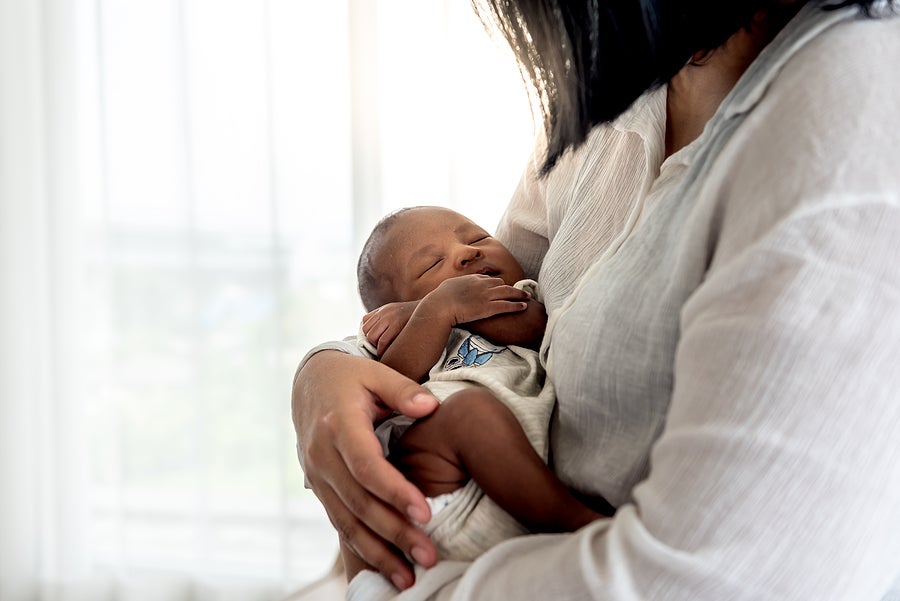The U.S. is facing a worsening maternal mortality crisis that disproportionately affects pregnant people of color, and research suggests that the Supreme Court decision in Dobbs v. Jackson Women’s Health Organization overturning the constitutional protection of access to safe and legal abortions could further exacerbate current racial, economic and social inequities in maternal and infant health.
And yet, states are right now operationalizing one of the most significant coverage changes for pregnant and postpartum individuals in a generation.
Medicaid has a big role to play in making things better. The American Rescue Plan’s state option to extend Medicaid and CHIP coverage for one year after the end of pregnancy is a transformational opportunity for states to support improved maternal and infant health in the year following birth. It’s also a pillar of the Biden Administration’s newly-released White House Blueprint for Addressing the Maternal Health Crisis. A bipartisan swath of states are taking up the option with enthusiasm: policymakers have allocated funds to extend 12 months of postpartum coverage in 20 states led by Democratic governors and 13 states led by Republican governors.
If all states were to take it up, an estimated 720,000 additional people each year would gain access to a full year of postpartum health coverage who might have otherwise lost coverage just two months after the end of pregnancy. In addition to the huge benefits for postpartum people’s health, the coverage extension can also help states smooth the restart of normal operations after the end of the COVID-19 public health emergency. All told, a successful implementation of the 12 months of postpartum coverage in every state – which includes thoughtful policy and systems changes designed to ensure postpartum women and infants successfully access needed care at the right time– has the potential to positively impact all of the nearly two million mother-baby pairs with Medicaid-financed births each year.
Our new brief outlines steps states can take throughout the implementation process, including setting quality improvement targets, growing the perinatal workforce, and building system linkages between maternal and pediatric health care that support the healthy development of the parent and child together. Looking ahead, the brief also offers ideas for how states can use the extended postpartum coverage opportunity to advance broader state priorities, such as advancing racial justice and health equity, increasing access to mental health care, and supporting healthy child development.
But this postpartum extension’s potential is only as good as the foundation of coverage in each state. Extending postpartum coverage in states that haven’t expanded Medicaid hardly makes up for the fact that many low-income adults do not have access to coverage before or after pregnancy.
Research shows that Medicaid expansion is essential for new moms and babies before, during, and after pregnancy, and is associated with reductions in maternal and infant mortality, especially for Black women and babies, as well as decreases in uninsured rates for women of childbearing age across all racial and ethnic groups. Lawmakers in several non-expansion states, including Florida, Georgia, South Carolina and Tennessee, have allocated funding for the extended postpartum coverage period, yet they continue to refuse to expand Medicaid to all adults.
New research from Kaiser Family Foundation shows the problems this poses for postpartum people. In the states that had not implemented the Affordable Care Act’s (ACA) Medicaid expansion as of 2018, 61% of postpartum enrollees were disenrolled within a year after delivery – double the rate of 29% found in Medicaid expansion states. While extending postpartum coverage will help mothers stabilize after the end of pregnancy, in states that have not expanded Medicaid, the extension only pushes their coverage cliff further down the road. Policymakers in these recalcitrant non expansion states should be clear that extending Medicaid postpartum coverage is necessary, but insufficient on its own to meaningfully respond to the maternal health crisis.
Right now, the window is open to prioritize maternal and child health in Medicaid in a way we haven’t seen in many years. Because Medicaid covers a disproportionate share of births among Black, American Indian/Alaska Native, and Hispanic women, the new postpartum coverage extension offers states the opportunity to leverage Medicaid’s financing role to spur sorely-needed system improvements that seek to advance health equity by more effectively serving young families of color.
Advocates, care providers, community members and state agency officials can work together to use the longer coverage period as an opportunity to redefine what the postpartum year looks like for mothers and babies to create a stronger foundation for all families.


